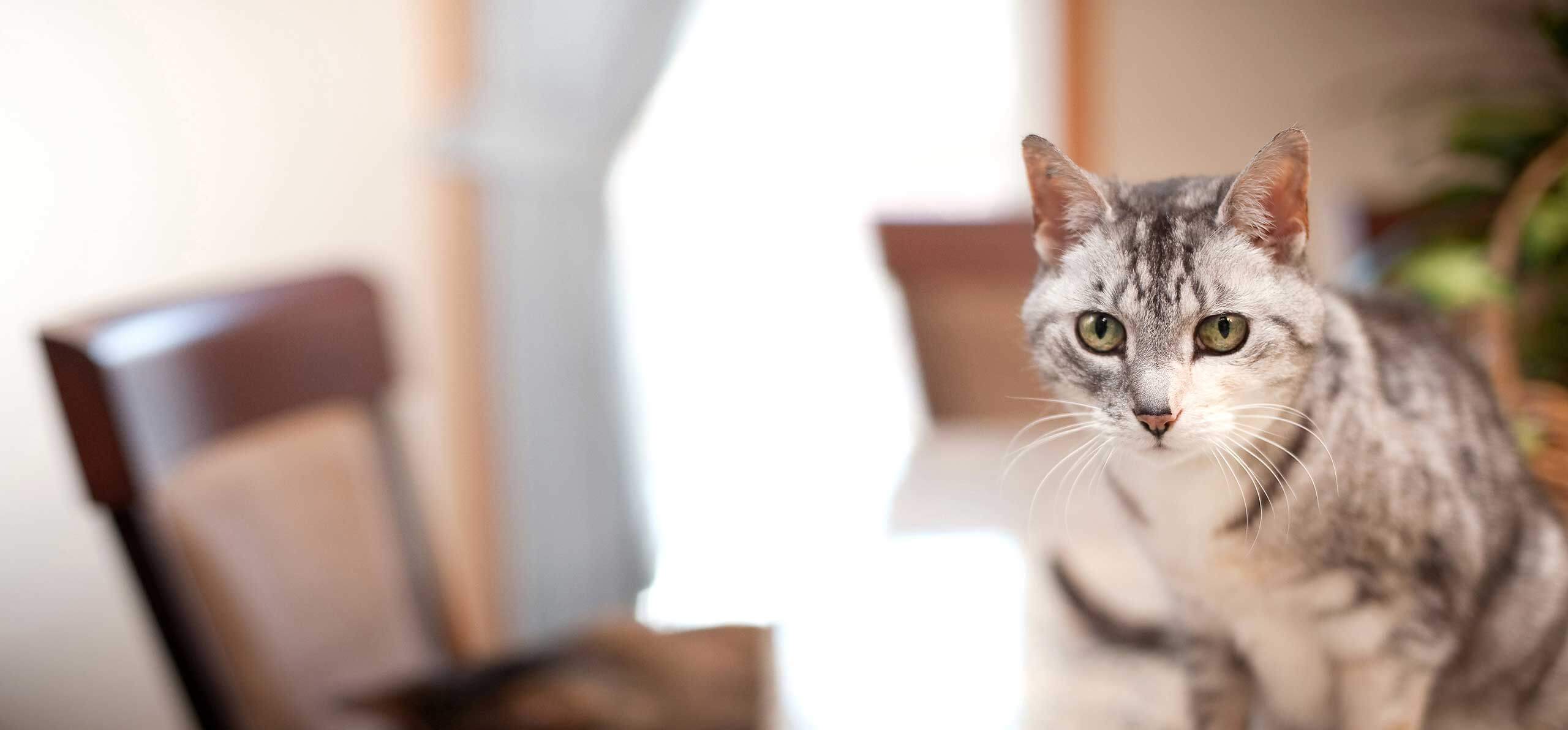When Can Kittens Eat Cat Food?
Kittens require about two to three times the amount of energy from their food as adults need, and about 30% of that energy comes from protein. As adults, cats no longer require this increased amount of energy.
Keep feeding your feline her special kitten formula until her first birthday. At that time, you can transition from kitten to adult food. As always, ask your veterinarian for the best natural, high-quality food options now that your kitten is an adult.
The amount you feed your adult cat should be based on her size and activity level.
How Do I Keep My Older Kitten Interested in Her Food?
Smell has a lot to do with your cat’s appetite. If she can’t smell her food, she won’t eat, which is why she may turn up her nose at cold leftovers straight from the fridge.
Tip: Heat refrigerated leftovers in microwave for 5 or 10 seconds before serving.
Also, watch her health and have your veterinarian treat any upper respiratory infection your kitten may get. If her nose is stuffed up, she may not want to eat even her favorite food.
Fun Fact: Though pups probably have the best smellers, those little velvet cat noses have millions of odor-detecting cells, too!
How Do I Keep My Cat Healthy and Happy?
Cats are stoic; they’ll go to great lengths to hide signs of injury or illness. Even though your cat will visit the veterinarian at least once a year, it’s best to watch her body and behavior closely to catch any issues before they escalate. Look for these signs:
Sleep-a-holic kitty: Healthy cats sleep a lot (about 16 to 18 hours/day); get to know your cat’s sleeping patterns. If she’s snoozing when she usually plays or ignores affection or a favorite toy, her lethargy might be due to illness.
Eating, drinking changes: If your cat has diabetes, she’ll drink lots of water. If she has dental issues, she might suddenly stop chewing her favorite kibble. Track how much your cat normally eats and drinks so you can gauge any changes.
Urination problems: Urinating more, less or not at all, or elimination outside of the litter box can all be signs your cat may be ill. See your vet immediately, especially if your male cat is urinating abnormally.
Behavioral issues: Acting aggressively can be a sign of pain and injury, but cats will also hide when they’re sick, so watch your cat's behavior closely.
Weight loss/gain: Look for protruding ribs and or the development of a pouch. Changes in weight can be difficult to detect because they’re usually gradual. Groom your cat to get a feeling for her body weight and condition, so you can sense when there’s a change.
Grooming changes: If your cat’s fur begins to look gnarly or matted, it might mean she’s not feeling well enough to groom, something cats usually love doing. Too much preening could also mean she has a skin infection, fleas, or is in pain.
What Are Healthy Activities for My Cat?
By now, you should have a healthy exercise plan in place to help your cat from becoming obese, which can extend the quality of her overall health. Always check with your veterinarian to see if your cat has any existing issues that would preclude exercise and ask for recommendations on healthy activities specific to your cat’s lifestyle needs.
Tips for healthy play:
-
Leave cardboard boxes and paper bags for cats to pounce on
-
Play chase with toys, balls, feathered sticks, and flashlight pointers (NOTE: Never shine the pointer in your cat’s eyes)
-
Get a cat tree and use catnip as an incentive to promote climbing
-
Have a tall scratch post for her to stretch and scratch on
-
Set up play dates with other four-legged pals; consider adopting a sibling cat or even a pup
-
Reward tricks with healthy treats. Train your cat to run to you from across the room or climb up her cat tree when you shake a bag of yummy treats
When Is It Time to Switch Litter?
If your cat uses her litter box every day, then you probably shouldn’t change litter brands.
However, It’s not unusual for cats to outgrow their litter and become averse to the box they’ve been used for months. If you try a more a new litter, be sure to transition your cat slowly by combining old and new litters until she adjusts.
Clues your cat doesn't like her litter:
- Two of her paws are in the box, two are out
- She doesn’t dig to bury her waste
- She steps out of the box, shakes her feet
- She scratches the floor or carpet outside her box
- She urinates outside, not inside, the box
First Birthday Come And Gone?
We hope it was a happy one with many healthy treats to celebrate your first year with your best pal. Find out more about adulthood on our Adult Cat Guide.

